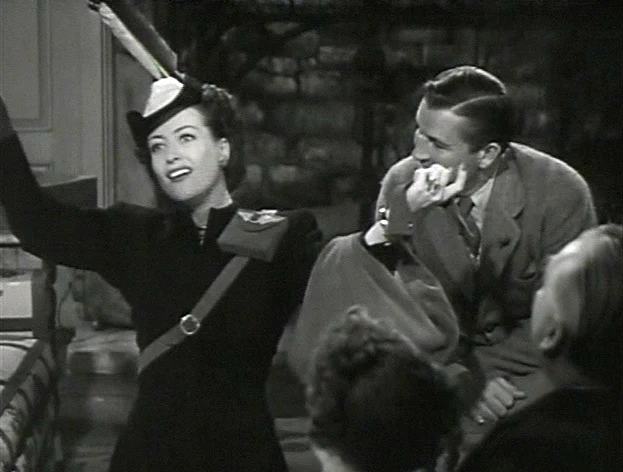Susan and God (George Cukor, 1940)
Cast: Joan Crawford, Fredric March, Ruth Hussey, John Carroll, Rita Hayworth, Nigel Bruce, Bruce Cabot, Rose Hobart, Rita Quigley, Constance Collier, Richard Crane, Norma Mitchell, Marjorie Main, Aldrich Bowker. Screenplay: Anita Loos, based on a play by Rachel Crothers. Cinematography: Robert H. Planck. Art direction: Cedric Gibbons, Randall Duell. Film editing: William H. Terhune. Music: Herbert Stothart.
I have no hesitation in calling Joan Crawford one of the greatest film actresses of the studio era, and there's a moment in Susan and God that fully justifies my opinion. It comes at the turning point when Crawford's character, Susan Trexel, realizes how much harm her giddy self-absorption has done to her husband and daughter. In only a few seconds, surprise, guilt, and shame cross her face, and without mugging or emoting, Crawford gives each thought and emotion its due. But the moment also reveals how out of place in this sentimental comedy Crawford is: She was made for melodrama, not for frivolity, which is what the role chiefly calls upon her for. Through much of the movie, Crawford seems to be copying Rosalind Russell's performance in The Women, the movie she made with Russell and director George Cukor a year before Susan and God. In The Women, Russell played the nitwit socialite that Crawford is expected to play in Susan and God. But Susan Trexel lies outside of Crawford's established tough-as-nails persona -- which she played on to perfection in The Women -- and the later film suffers from it. It also suffers from a rather scattered script, too stuffed with secondary characters, and from a general confusion about exactly what kind of "god" Susan has found -- apparently a kind of self-help feel-good cult. Cukor keeps things moving nicely, and there are good moments from supporting players like Ruth Hussey and Marjorie Main, but it's easy to see why the film was a flop at the box office.

























